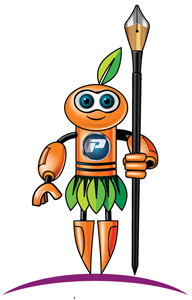14 Jul Leader’s Interview
Interview with Leaders
About Lakshmy Menon
Lakshmy Menon has around 22.5 years of experience in the IT industry. She started her career in IT as a faculty in NIIT and then moved to Technical Writing in late 2000. She has worked across many domains and in both product and IT services companies. She currently works with Dell Technologies and manages a team of Technical Writers. She is a published poetess, short story writer, and an artist. She is currently learning about UX writing and hopes to learn more about this skill. She is based out of Bangalore and lives with her husband, daughter, two dogs, and a cat.
Follow her on LinkedIn.


What are the ideal Top 5 assets that a Technical Writer needs to Master or be a Jack of all Trades, irrespective of whether it’s a technical or soft skill?
I think the top 5 skills a Technical Writer needs are:
- Strong command of English grammar and vocabulary – This is a no-brainer, but I still need to emphasize it because it is a core skill. Writers should be able to write grammatically-correct content, even if they are not familiar with a Style Guide. I strongly feel that this skill is critical to becoming a valued Technical Writer in any organization. This skill also becomes handy when you do self or peer reviews.
- Audience analysis – While Technical Writers may not always have access to customers directly, it is important to understand the audience for whom they are creating content. This would require study of personas, conversations with Tech Support people who hear directly from customers, and also being able to create content in a format that customers can easily understand.
- Technical aptitude – This will help a Technical Writer learn and work across different domains. While having strong technical knowledge is an asset, a bigger asset is the ability to assimilate new domains and technologies quickly, which would help Technical Writers stay relevant and in tune with the latest technologies.
- Networking and stakeholder engagement – This is another important skill for Technical Writers to have because the success of their deliverables is closely linked to how their stakeholders in different functional departments support them with inputs and reviews. It is critical that the Technical Writer develop strong interlocks with different stakeholders so that their work does not get hampered.
- Passion – While this is something that is applicable to all professions, due to the nature of the work, technical writing can become monotonous and repetitive over time if Technical Writers work on the same product and tools for years. But if there is passion, there will always be a drive to look for new ways of creating content, new types of content to publish, and the need to constantly improve oneself as a Technical Writer.
Customer Feedback mechanism on Product Documentation is routed mostly via Customer Support teams. Should Technical Writers have direct access to customers to enhance documentation?
There should be a mechanism where Technical Writers can access direct customer feedback on documentation and publish changes to documentation on-the-go. This is critical to improve customer satisfaction and avoid costs incurred from calls to Tech Support.
Automation is a constant threat reducing several manual jobs across industries. Will Technical Writing be able to compete or lose importance by the next decade?
Content will always be important as long as human beings are around. The type and nature of this content will change and a Technical Writer needs to be agile enough to understand and adapt to changing trends in content types and needs. It is important to up-skill as new skills and new types of content emerge so as to remain relevant to the organization and the market. This is where the five assets mentioned earlier will become useful to stay relevant in the Technical Communication field.
What is the greatest achievement or knowledge that you wish to share from your TW experience that the rest of the community can benefit from?
I would not call this my greatest achievement or knowledge, but I think that staying ahead of the curve is very important for anyone to survive in today’s challenging environment. What that means is that you need to constantly evolve, adapt, innovate, and bring value to your organization and yourself. In my earlier years as a Technical Writer, I used to shift companies every one to two years. While this was a concern during HR interviews, I learned a lot about different domains, different tools, and I built myself a good network of contacts in the Technical Writing community. It also gave me invaluable insight into human behavior and office politics, and how to navigate through this, which is a very important skill to have. In the later years, I have settled down in my role as a Manager and I have been in my current company for almost eight years now, but I still have not stopped learning and developing new skills.
What would you have been if not a Technical Writer?
If not a Technical Writer, I would have probably gotten involved in User Experience. Being somebody who is extremely empathetic, I have the ability to look at content and design from an end-user’s perspective and this has always given me an edge as a Technical Writer and as a Manager.
In your TW hiring experience, where do you think job applicants are going wrong and need to differentiate themselves in their resumes or interview stage?
The most important point is that a Technical Writer’s resume is their first writing sample that I review as a hiring manager. I immediately discard resumes that have language or formatting issues. The next thing I look at is their exposure and experience to different domains and their achievements during their career. I am not too concerned with tools knowledge as long as they display an aptitude to learn and develop their skills quickly. Also, I respect honesty and appreciate humility. Saying ‘I don’t know the answer’ to an interview question is much better than trying to answering vaguely or fibbing. And answering to the point is way better than providing a long answer to a question that can be answered in five to ten words.
TWs can adapt to various industry domains but is it important for them to stick to one domain from a long-term career standpoint?
Based on my personal experience, the answer is ‘no.’ It is important to get exposure to different domains, tools, and work environments because only then will you know where your strengths are and what you should focus on from a long-term career standpoint. It is better to shift jobs early in your career because your aptitude to learn is higher. As you grow older and more senior in your career, you may find it more difficult to learn and adapt. This is, of course, my perspective.
How critical is it for TWs to adapt and contribute to various Content roles in an organisation?
I think it is very important to adapt and contribute to various content roles in an organization, the key word being ‘adapt.’ When you get exposure to different areas of content and content management, you also get more opportunities to diversify your skills and hone on your strengths. You cannot do that by remaining in a silo.
What would you advise the next generation of Technical Writers?
Develop strong language skills because that is the core for anything and everything you create as a Technical Writer. Learn about technology trends, learn new skills, and keep on learning. That is the only way to stay relevant and valued in an organization. Build your network, attend Technical Writing conferences when possible, and interact with people having different skills and backgrounds. And know your customers – the people who are finally going to read your content – so that you can create content that is usable.
If you were not a human but a hardware or software application, which one would you like to be, and how would you like to be best documented?
Hmmm…If I were a hardware, the first thought that came to my mind was I would like to be an intelligent monitor that can observe end-users’ reactions while they are performing a task. I should be able to pinpoint where the software is going wrong and provide immediate feedback to the software, which will help improve software performance and keep customers happy. I would love to be documented using chat bot assistance so that it can notify the end-users about any issues immediately. Of course, since there may be a host of privacy concerns here, it may not be something that can be implemented.




No Comments